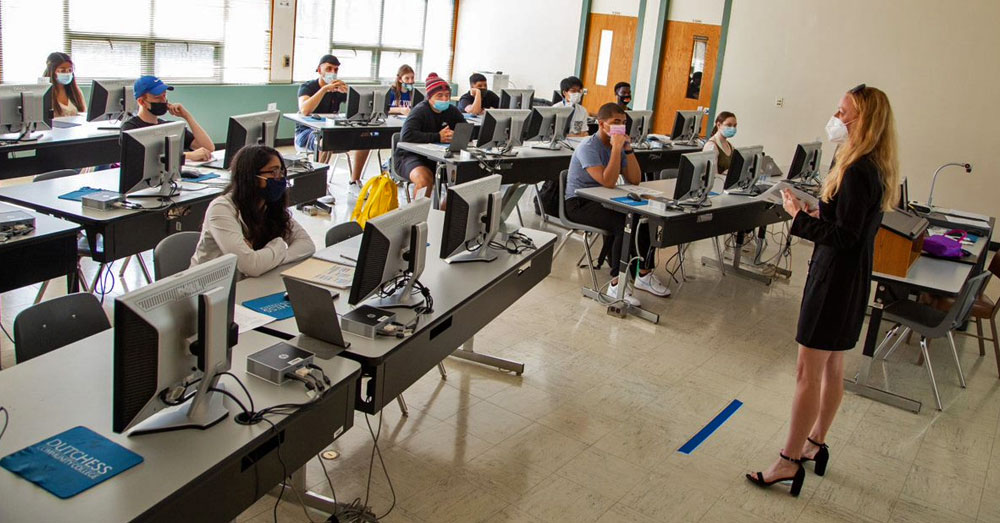New York State is investing $150 million to expand TAP funding for part-time students, a change that will empower as many as 75,000 more nontraditional and adult learners in New York State to pursue higher education.
New York State’s Tuition Assistance Program (TAP) is one of the first options New York State students should consider to help pay for college. TAP is a type of financial aid funded by New York State. The TAP grant awards students up to $5,665 annually. Students do not have to pay back TAP because it is not a loan.
Previously, TAP was available only to students taking 12 or more credit hours per semester toward a degree program, or part-time students with a history of full-time study. Now, it is open to any eligible student taking at least 6 credits per semester in their program of study.
How has TAP expanded?
In the 2020-2021 academic year, an estimated 78,771 SUNY students received TAP funding. Expanding access to TAP has the potential to increase the number of recipients by 75,000 students each year.
Previously, working adults in college programs had two options: go full time to be eligible for TAP or attend part-time without TAP aid (though they may have been eligible for other forms of aid). Working adults and students with families know that each choice comes with financial, personal, and professional restrictions or implications. Now, students don’t have to change their plans or upend their lives to be eligible for additional aid and get the education and skills they are working so hard for.
In addition, after a 25-year ban, incarcerated students can once again benefit from TAP funding to gain skills and work toward a degree. Access to financial aid opportunities to pursue a college education while in prison plays a vital role in reentry, sustainable long-term employment, and educational equity.
Finally, the changes impact campuses. In her 2023 Executive Budget review, Governor Hochul announced that the state will provide an additional $48.8 million to SUNY campuses to close the TAP Gap—the difference between the cost of full tuition at SUNY and the amount campuses can charge TAP-eligible students. This costs campuses about $70 million per year, according to United University Professions (UUP).
Who is Eligible for TAP?
US citizens and eligible non-citizens who have lived in New York State for at least 12 months may be eligible for TAP if they:
- graduated from high school in the US, earned a GED, passed the Test Assessing Secondary Completion (TASC), or passed a federally approved “Ability to Benefit” test as defined by the Commissioner of the State Education Department;
- study at an approved college or post-secondary institution in New York State;
- are enrolled as a full-time student in an approved program of study and in good academic standing (at least a “C” average as of the fourth semester of payment).
- are charged at least $200 per year for tuition;
- meet the income eligibility requirements, which are outlined below; and
- are not in default on state or federal loans.
TAP Income Eligibility Requirements
| Student Type | NYS Taxable Income Limit |
|---|---|
| Dependent undergraduate students Independent students who are married and have tax dependents Independent students who are unmarried and have tax dependents Students who qualified as an orphan, foster child or ward of the court at any time since the age of 13 | $80,000 |
| Independent undergraduate students who are married and have no other tax dependents | $40,000 |
| Single independent undergraduate students with no tax dependents | $10,000 |
TAP for NYS DREAM Act Students
The Senator José Peralta New York State DREAM Act gives undocumented and other students access to New York State‐administered grants and scholarships that support their higher education costs, including TAP. View the full TAP eligibility requirements for NYS DREAM Act applicants.
To learn more and see if you meet the initial eligibility requirements, view the TAP quick reference from the NYS Higher Education Services Corporation’s (HESC).
A SUNY campus financial aid office can advise on an individual student’s eligibility.
Learn more about college costs and financial aid, and how to make college affordable for you and your family with SUNY Smart Track.




